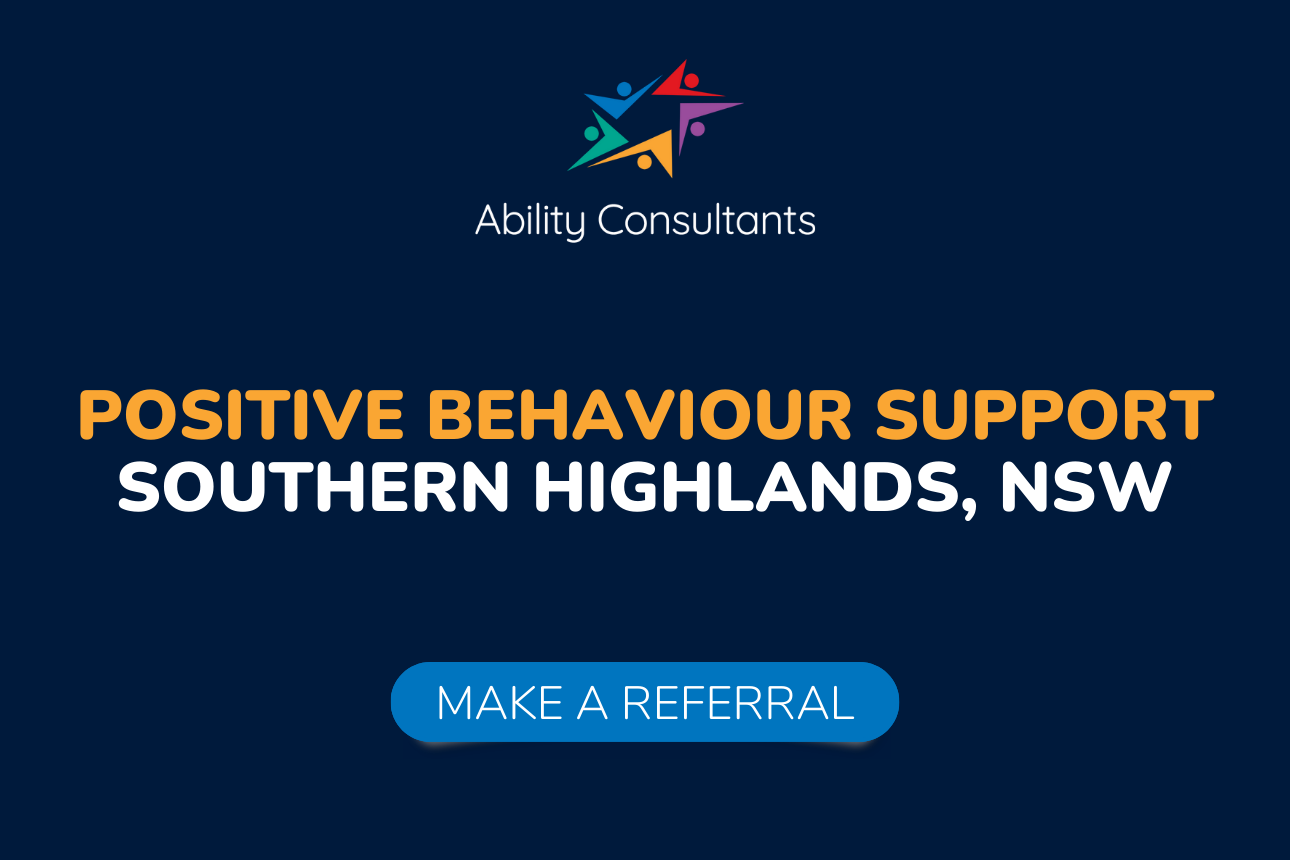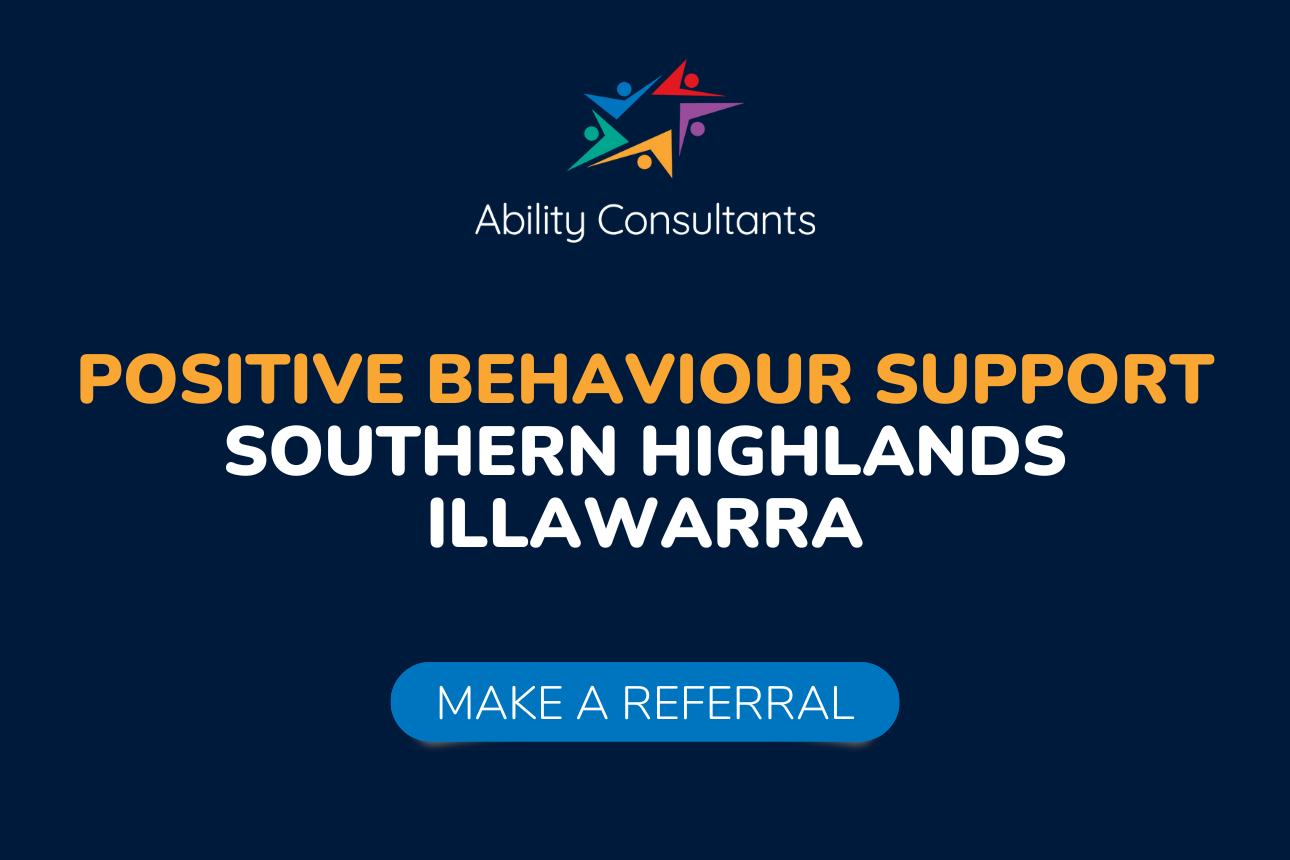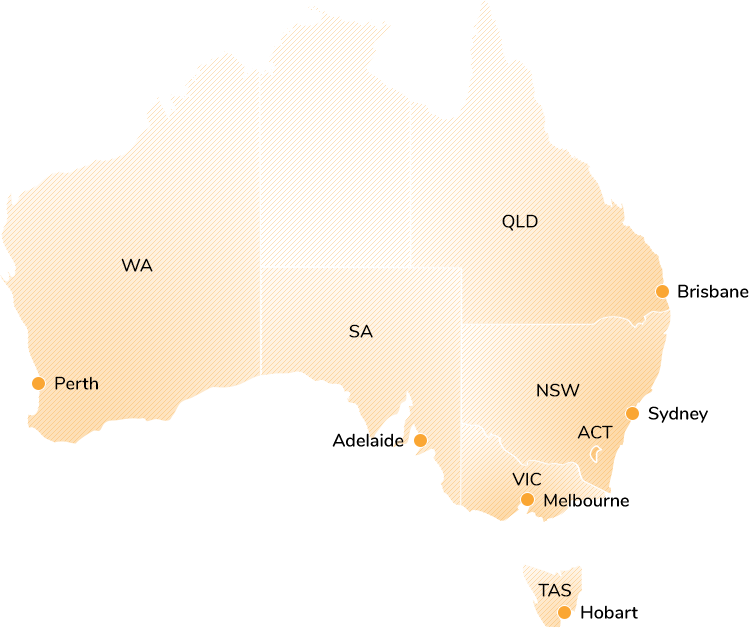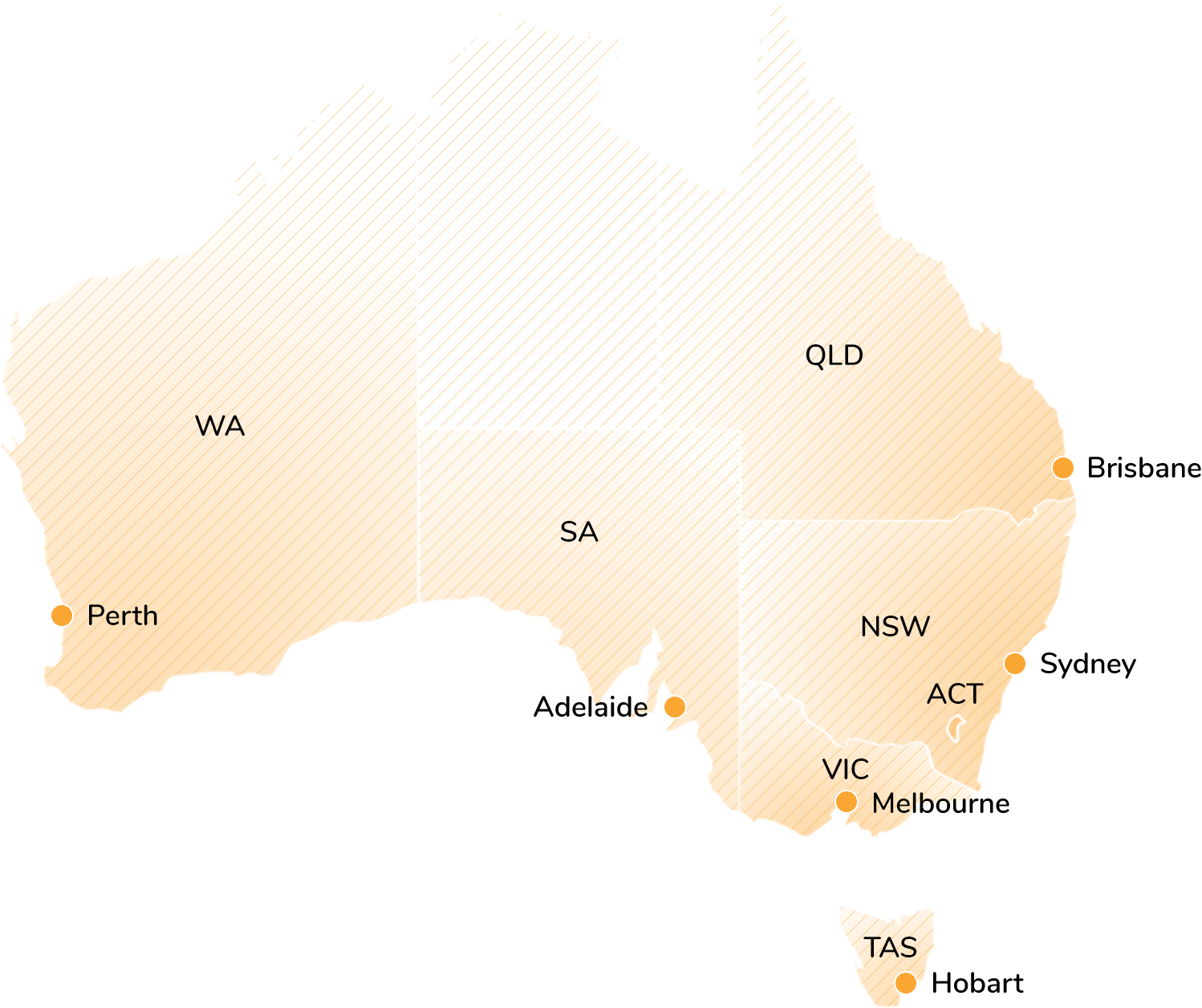Positive Behaviour Support Southern Highlands, NSW: Meet PBS practitioner Kerry Miller

We provide Positive Behaviour Support in the beautiful Southern Highlands in New South Wales. If you’re ready to get started with Positive Behaviour Support, please make a referral by filling out a short online referral form.
We have an incredible team of behaviour support practitioners in regional New South Wales and we’re pleased to introduce Kerry Miller. Kerry graduated with a Bachelor of General Studies and Bachelor of Teaching from the University of New England, as well as a Graduate Certificate in Positive Behaviour Support from Flinders University. Kerry supports NDIS participants in the Southern Highlands and Shoalhaven, and brings to her role extensive experience in special education.
Meet Kerry Miller, Behaviour Support Practitioner in the Southern Highlands, NSW
Hi Kerry, it’s great to have you on our team in the Southern Highlands! Tell us about you!
Hi Melody, it’s great to be part of such a wonderful and supportive team!
I grew up in Tahmoor, NSW, in a big, noisy, inclusive family. I’m a country girl at heart, I’ve always been a “people person”, and I thrive on connection. My own personal journey has included plenty of setbacks and challenges, and I’ve learned that being gentle and accepting with oneself, and celebrating progress, however small, is so important. Techniques and strategies are great and can be really helpful - but only go so far. People need time and nurture to grow.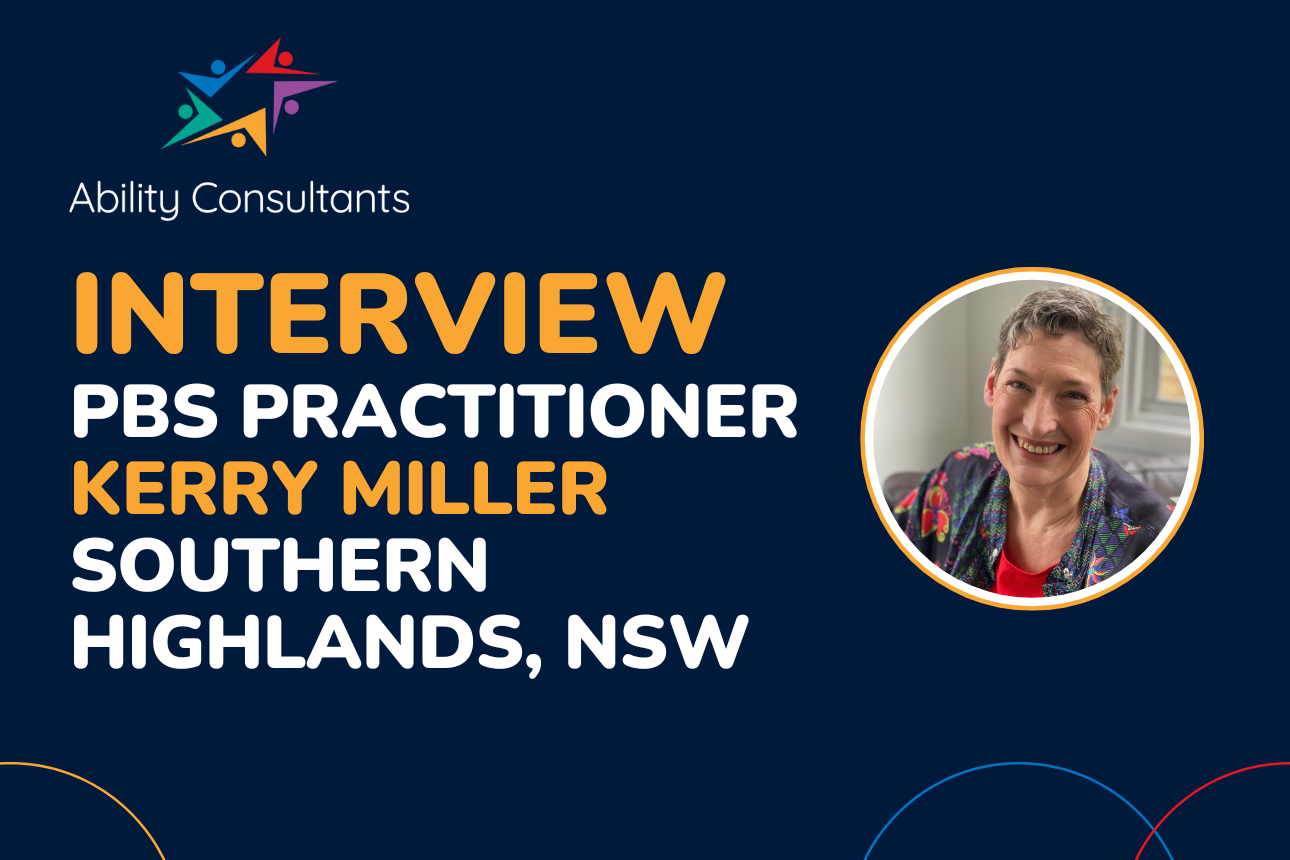
What drew you to Positive Behaviour Support?
Years of working with children and adults with intellectual disabilities and with their families and support networks, and so often seeing that the needs of these people — I mean, the person at the centre and their families/carers — were often not being met.
Looking back at these experiences — in so many cases, the values, needs and preferences of the people involved were not being understood or recognised, leading to an escalation in challenging behaviours, and there was often a real sense of failure, overwhelm or inadequacy for carers. I wanted to find a way to help the people I worked with find solutions to untangle some of these dynamics, and really result in a better life.
You’re committed to working in a way that is relational and trauma-informed. Can you tell us what this means and how it influences your approach to supporting NDIS participants?
Human beings are hard-wired for community. We all need healthy interpersonal connections in order to thrive, and helping people I support achieve this is one of my greatest joys. I also, honestly, don’t think you can deliver quality support to people if you haven’t taken the time to really know and understand them.
Add to this, the fact that so many NDIS participants have experienced at least some degree of trauma, and in many cases this has been both complex and severe. We know that the best predictor of recovery from traumatic experiences is being able to experience safe, supportive relationships in our close networks. Understanding a person’s preferences and needs and being able to meet them in a person-centred and consistent way, helps to create this safety for everyone involved. It provides the best possible conditions for growth!
You have lived experience as a mother of neurodivergent children — what advice do you have for parents whose children have recently been diagnosed with autism?
I think, for me, the hardest thing about raising a neurodivergent family, was the feeling that others were judging us because we weren’t hitting the same milestones at the same time as a lot of other families.
There’s a lot of societal pressure on us, as parents, to somehow show that our family “has it together”. It’s hard to meet that pressure for anyone — and when your children are struggling with additional challenges, it can be very unhelpful.
My mantra for a lot of years was that so long as we were moving in the right direction — however slowly — we were doing well. It didn’t matter what anybody else was doing, progress was progress. And my kids, who are young adults now, are finding their own way, in their own way, and I feel very proud of them.
My best advice to other parents is to not compare your family with others. It doesn’t matter how slowly you get there — if you can look back and see progress — no matter how small — then you’re doing just fine.
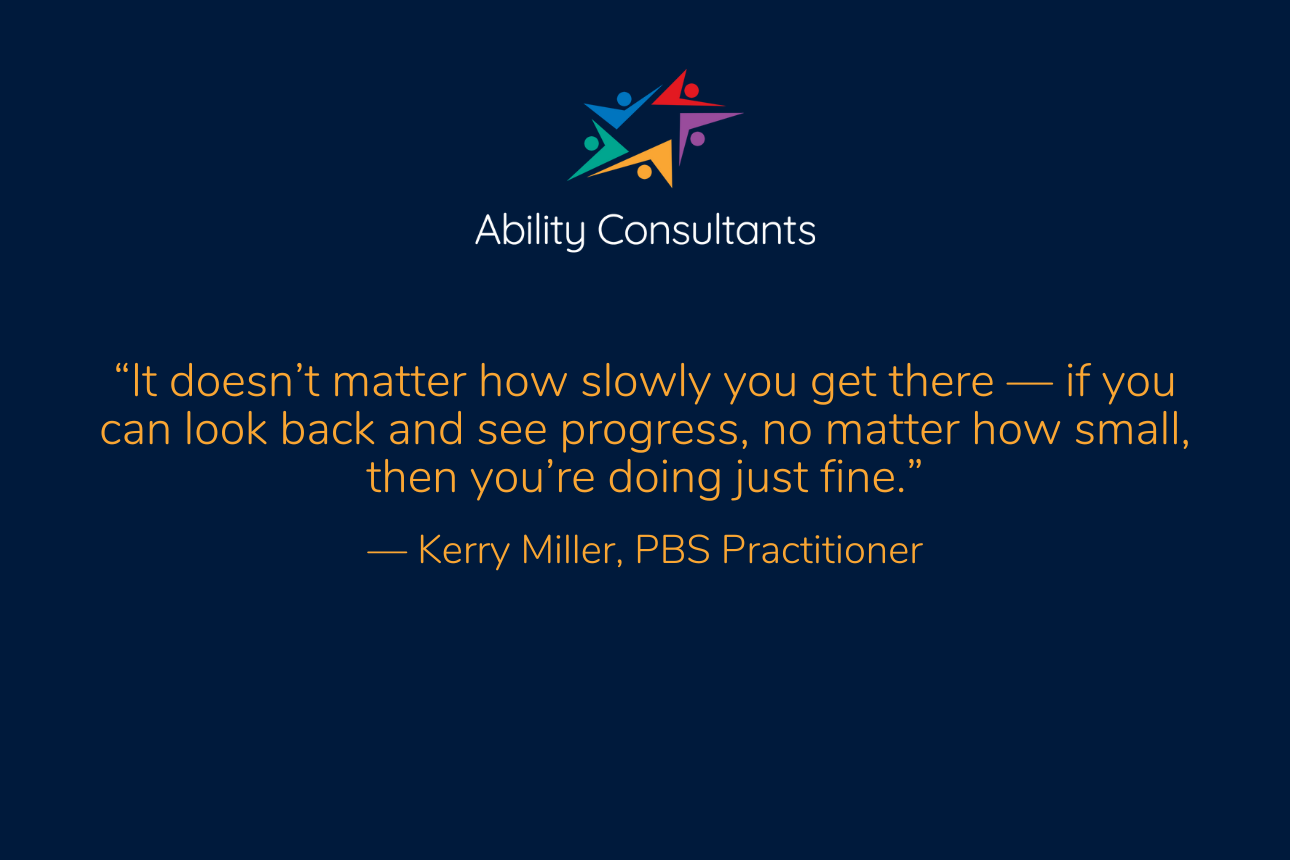
Positive Behaviour Support in the Southern Highlands
Can you tell us about a time you’ve seen Positive Behaviour Support in action and the effect it had on a person and/or their family?
Look, PBS is not a magic wand, and although quick results can happen, it’s more often subtle and slow — but I have seen people with really challenging behaviours grow and thrive when others did not think it was possible.
I remember a particular young man I worked with, who was really struggling. He was a tall, strapping young man living with autism, and who would become easily overwhelmed and respond with verbal aggression and absconding behaviours. People working with him at his day program felt overwhelmed and unable to manage this and it seemed like there was no solution.
Once we began to understand the signs of overwhelm for him and the things that caused it, his support workers were able to relate to him in a much more supportive and confident way, and instead of being a huge challenge to support, he became a really valued participant in his day program. It took about a year to really turn things around — but everyone could see the difference. And it wasn’t just the participant at the centre who grew and flourished — his support team did too!
Can you share an example of how Positive Behaviour Support can improve quality of life for children or young adults on the autism spectrum?
The majority of disabilities are unseen from the outside, and the biggest struggles of people with ASD can be quite invisible to others. Add to this, the fact that many people on “The Spectrum” can struggle to identify and articulate their internal states, and you have a recipe being misunderstood and not having your needs met.
One of the important tools in PBS is Functional Behaviour Analysis, and this can really support us to understand some of these internal challenges, making them “visible” so that needs can be met. This will look different, depending on the person — sometimes carers can be supported to advocate for the person, and sometimes the person is supported to confidently advocate for themselves. Whatever form it takes, the result is that hidden needs are identified and met, and quality of life improves.
What does it mean to be client-centred?
People often think behaviour support is code for “making a person behave”. We know though, that coercing somebody to do what others want without considering their needs and preferences is unsustainable at best and can often be harmful. Being client-centred takes the focus off the behaviour, and onto quality of life for the person.
When we work this way, we are far more likely to find solutions that are not only easier to implement, but also create lasting change. It works, because it makes life better for the person at the centre — which, in the end, helps everyone involved!
Throughout the process of creating a person’s behaviour support plan, how do you consider the strengths and capacity of the people who care for your client? Why is this important?
I really see a behaviour support plan as the record of the work we do together as a team. It’s not a prescription handed down for carers to follow, but rather a collaboration with everyone involved.
The most evidence-based strategy in the world is useless, if it doesn’t fit the context of the person and their support network. A plan has to be something that carers can understand and use, and the best way to achieve that is to actually work with them to create it.
I’m really big on advocating for carers too. So often, they are overloaded and receive inadequate support for themselves, yet they are so important in the world of every client. It’s the same for each of us — if we don’t have the support we need, we can’t function at our best, and carers need support — it can be such an all-consuming and undervalued role.
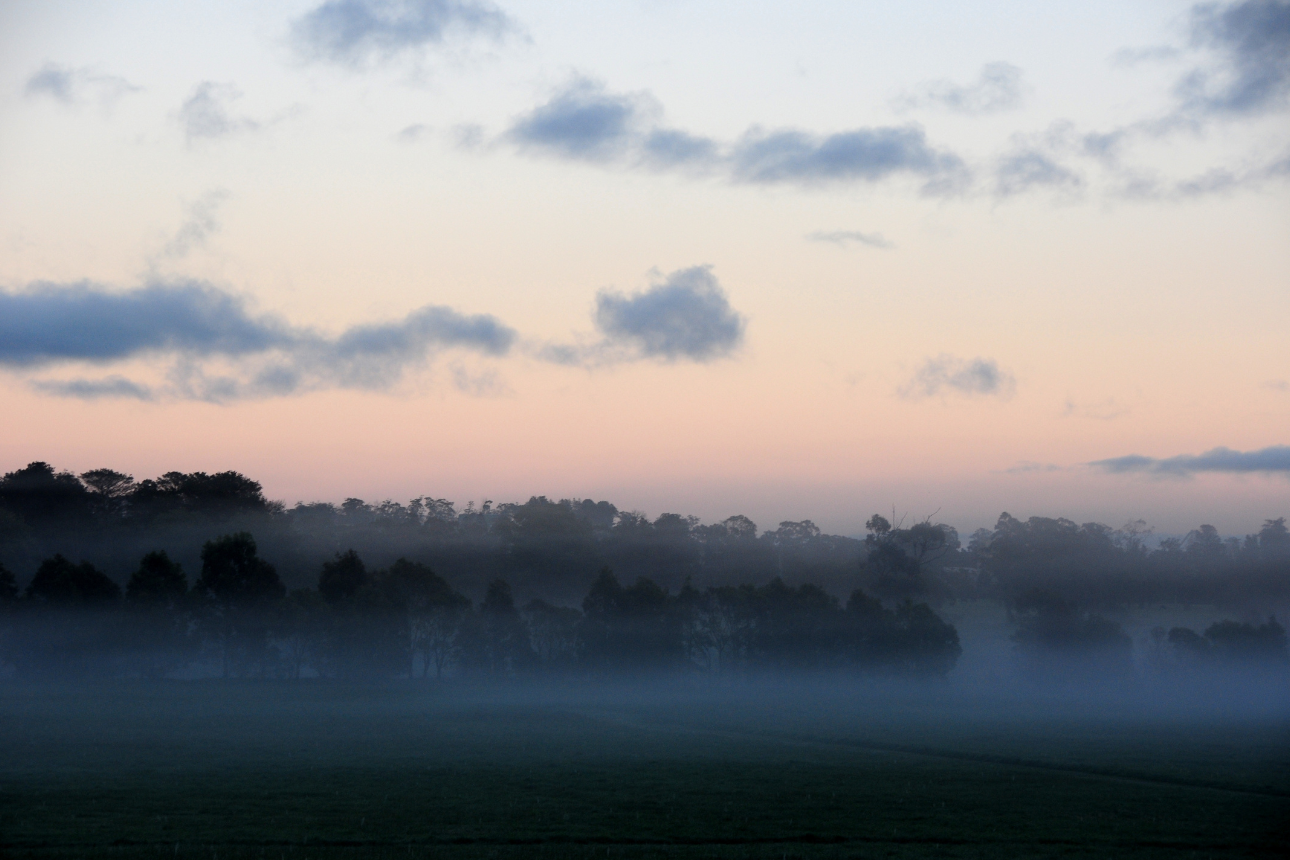
Positive Behaviour Support in the Southern Highlands, NSW
Where do you provide Positive Behaviour Support in NSW?
- Southern Highlands: Colo Vale, Hill Top, Balmoral, Yerrinbool, Mittagong, Bowral, Berrima, Burradoo, Moss Vale, Exeter, Sutton Forest, Canyonleigh, Bundanoon, Penrose, Glenquarry, Kangaloon, Avoca, Burrawang, Robertson
- Illawarra: Kangaroo Valley
- Sydney: Bargo, Tahmoor, Picton, Buxton, Couridjah, Mowbray Park, Oakdale, The Oaks, Appin, Douglas Park, Maldon, Thirlmere, Pheasants Nest, Bingara Gorge, Campbelltown area
Do you focus on supporting NDIS participants with specific diagnoses or age groups?
Not really. I love the variety that comes with working with people of all ages and diagnoses. I do love to work with families and teams, and as a former primary school teacher, I have lots of experience with school-aged children, but I have worked with plenty of older people too, and I think PBS is for everyone.
How to get started with Positive Behaviour Support in the Southern Highlands, NSW
How can NDIS participants in the Southern Highlands get started with Positive Behaviour Support?
The first step is to make a referral for Positive Behaviour Support on our website. You can do this anytime and you can make your own referral, or a member of your support team can make a referral on your behalf.
If you have any questions about Positive Behaviour Support in the Southern Highlands, please feel welcome to call our team on 1300 694 625 or send a message using our contact form.
Life in the Southern Highlands, NSW
What do you love most about living in the Southern Highlands of New South Wales?
I’ve spent most of my life in and around this area, so for me it feels like home. I love the sense of belonging to a community that comes with that. As a keen bushwalker, I also really love our spectacular natural environment — there are so many incredible places to explore nearby — majestic waterfalls, spectacular views, and hidden pockets of beauty. We are very spoiled here.
Can you tell us about accessible recreational activities or locations in the Southern Highlands?
If you’re a first-time visitor to the highlands, check out some of the waterfalls around Robertson: Fitzroy, Belmore and Carrington falls are all easy to access, and quite spectacular. If you’re not so outdoorsy (or even if you are!) there are lots of great food and wine experiences too. There are a number of wineries that are really worth visiting — Artemis and Centennial are personal faves, as well as Bendooley Estate with its famous book-barn!

About Ability Consultants
Ability Consultants is a Registered NDIS Provider in the Southern Highlands of New South Wales. We support NDIS participants throughout NSW, QLD, Victoria, Tasmania, South Australia and Western Australia.
We primarily provide Positive Behaviour Support however we also deliver psychology support in parts of Australia, including psychology assessments and therapy. Make a referral anytime by visiting our website.
About Positive Behaviour Support



